Sports Analogies Hidden In Classic Movies – Volume 100: “Romeo and Juliet”

- Today’s Movie: Romeo and Juliet
- Year of Release: 1968
- Stars: Leonard Whiting, Olivia Hussey, John McEnery
- Director: Franco Zeffirelli
This movie is not on my list of essential films.
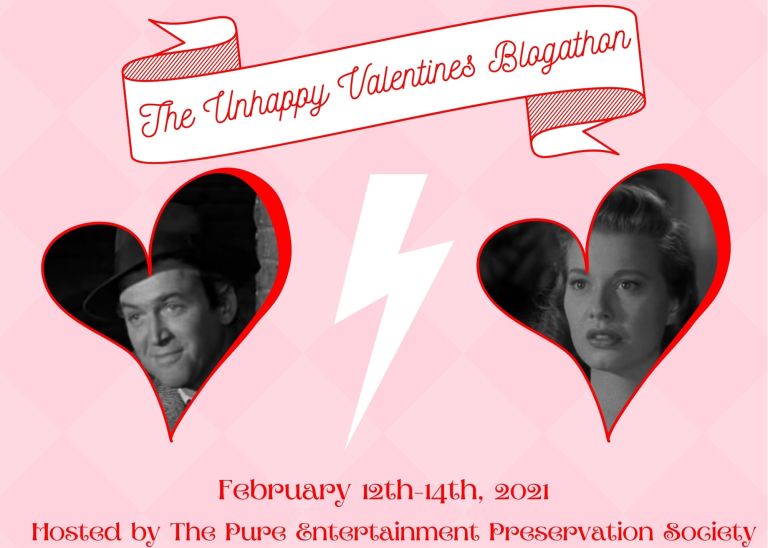
NOTE: This installment of Sports Analogies Hidden In Classic Movies is being done as part of something called the Unhappy Valentines Blog-A-Thon being hosted by Pure Entertainment Preservation Society. This is the third time I’ve been given the privilege of participating in one of their events, and hopefully it won’t be the last.
You can see all the contributors to this blog-a-thon here:
The Story:
Arguably Shakespeare’s most-known work, this film adaptation of Romeo and Juliet opens on a summer morning in Verona sometime around the year 1400. The Montague and the Capulet families have had a longstanding feud which on this day erupts in a street brawl. Verona’s ruling Prince Escalus breaks up the melée and issues a stern warning that any future violence between them will result in harsh consequences.
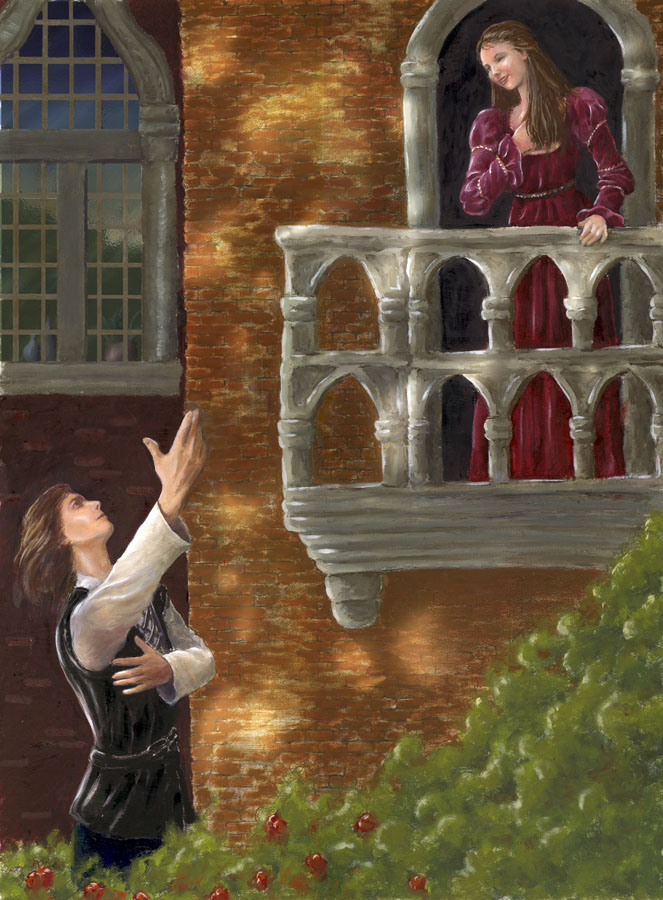
Later that night, Romeo Montague and Juliet Capulet meet at a masked ball…and so begins the “whirlwind romance.” After the ball, Romeo finds his way into the into the secluded garden under Juliet’s balcony where they declare their love for each other. The very next day, the couple is secretly married by Friar Laurence, who is Romeo’s confessor and a de facto “father figure.”
It only takes a few hours for the troubles to begin. Juliet’s cousin Tybalt is still furious that Romeo had attended his family’s ball. In fact, Tybalt was only prevented from killing Romeo the night before at the ball as the Capulet’s patriarch refused to allow the shedding of blood in his house.
But the next day, Tybalt challenges Romeo. However, since the secret wedding Romeo now considers him as family and refuses to fight. However, Tybalt’s challenge is accepted by Romeo’s best friend Mercutio. Romeo mounts an unsuccessful attempt to stop the fight, after which Tybalt fatally wounds Mercutio. Romeo then avenges Mercutio’s death by killing Tybalt. As a result, Prince Escalus keeps to his previous warning and banishes Romeo from Verona under pain of death if he returns.
Romeo sees his banishment as a fate worse than death as it forces his separation from Juliet, and Verona is the only home he has ever known. Friar Laurence convinces Romeo that his situation could be far worse, after which the newlyweds secretly spend their wedding night together, after which Romeo begins his banishment.
Another complication arises when Juliet’s parents arrange her marriage to the wealthy Count Paris. Naturally, they are unaware of Juliet’s clandestine wedding to Romeo, and she can’t tell them. Juliet pleads with her parents to postpone the marriage, but they refuse and threaten to disown her if she does not accede to their wishes.
Desperate for help, Juliet turns to Friar Laurence; she’s looking for a way out of the arranged marriage to Count Paris. Friar Laurence advises Juliet to reconcile with her parents and agree to be married to the Count. Meanwhile, he hatches a plan for Juliet to fake her on death on the night before the arranged wedding.
But before Friar Laurence can get word to Romeo of this plot, Romeo’s servant Balthasar sees Juliet being “buried” and tells Romeo she is dead. Despondent at the news, Romeo violates his banishment, joining Juliet at her tomb, where he commits suicide by drinking poison.
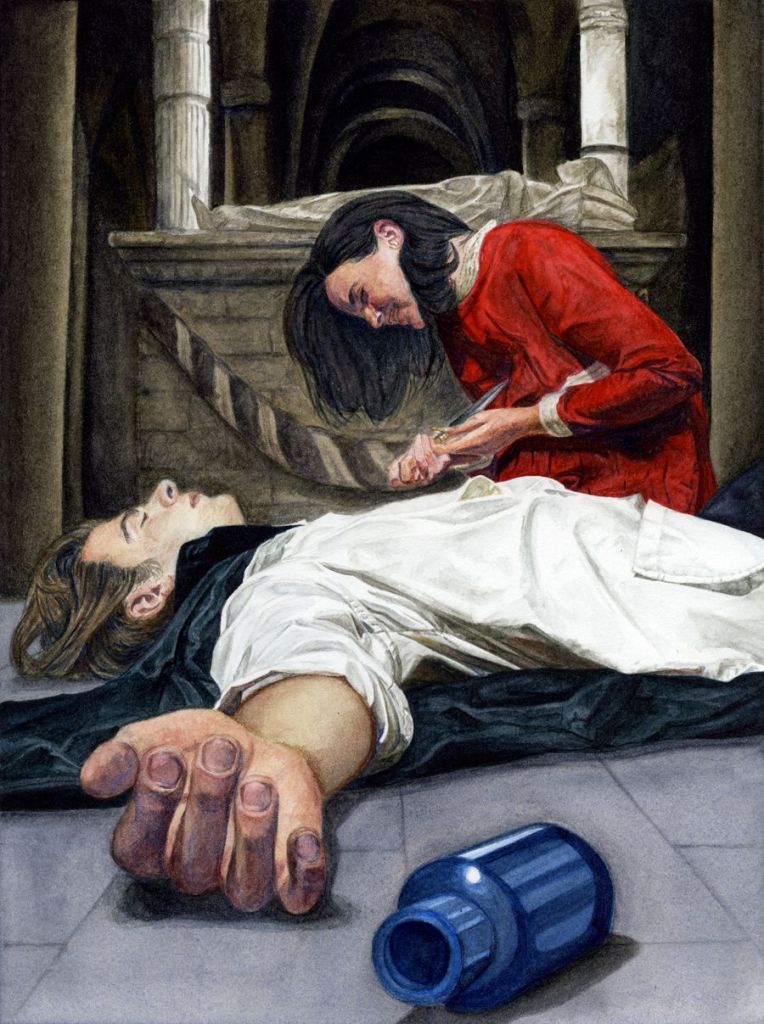
As Juliet regains consciousness, Friar Laurence arrives. He implores her to leave with him as their plot is about to be discovered. But Juliet will not leave Romeo, and Friar Laurence flees without her. Juliet then kills herself by plunging Romeo’s dagger into her abdomen.
The Hidden Sports Analogy:
Today’s hidden analogy is all about forbidden desires and the tragedy which can stem from them. Some six centuries after Romeo and Juliet’s all-consuming infatuation for each other led to their deaths, a similar tale of self-destruction took place on the hardwoods of the National Basketball Association (NBA). While the Verona of the 15th century and the Minnesota of the 20th have little in common, they are nonetheless connected by a tale of “breaking the rules. “
That’s the ugly reality of Romeo and Juliet. Like it or not, the central characters of Shakespeare’s piece are doomed from the outset not only by their feuding families, but by the practice of the time of pre-arranged marriages. The fact the theme of “forbidden love” makes for such potent storylines not only explains the timelessness of Romeo and Juliet, it’s the foundation upon which that theme’s migration into non-romantic territory is built.
Just think how many tales throughout history center on the overcoming of obstacles of any nature in the pursuit of “the heart wants what it wants.” While very different in nature, the links of the chain connecting “The Bard’s” star-crossed lovers to the Minnesota Timberwolves of the late 1990s are forged of the very same pursuits.
Let’s begin with the comparison to the House of Capulet…the Minnesota Timberwolves. Founded as an expansion team in 1987, the Timberwolves marked the return of the NBA to the “Land of 10,000 Lakes” after the original Minneapolis Lakers left for Los Angeles in 1960. The Timberwolves played their first game on November 3rd, 1989; a 106-94 loss on the road to the Seattle SuperSonics.
The the “novelty” effect had a firm hold in that first season. Playing in the Hubert H. Humphrey Metrodome, the expansion Timberwolves set an NBA record by drawing over 1 million fans to their home games in that initial campaign of 1989-90. That total included a crowd of 49,551 for the team’s final home game of that season, a 99–88 loss to the Denver Nuggets.

Playing home games in the cavernous Metrodome was a mess; that was a venue which was originally built for football and baseball, and was unwieldly at best for basketball. That meant playing basketball in it was only temporary. Unfortunately, that also applied to the fans’ interest.
That opening defeat marked the first of an overwhelming number of losses the franchise would suffer. In their first five seasons, the Timberwolves notched a record of 105 wins and 305 losses; easily one of the worst records in the league over that span. That level of ineptitude kept the fans away; things were so bad the original owners Harvey Ratner and Marv Wolfenson came close to selling the team to an ownership group who wanted to move the team to New Orleans. But the league intervened presumably because they didn’t want the NBA to have two failures in the Twin Cities.
By 1995, that led to the team being sold to Comfrey, Minnesota native and self-made Forbes 400 multi-billionaire Glen “Capulet” Taylor. While Shakespeare never laid this out expressly, it’s not hard to deduce the Capulets fancied themselves as 15th-century social climbers. That’s why they were hosting balls and inviting all of Verona’s “movers and shakers” and why they wanted Juliet to marry Count Paris.

I lived in Minnesota for over fifteen years, and for a while, I had a girlfriend whose mother went to high school with Taylor in that small, southwestern Minnesota town. That means I’ve actually set foot in Comfrey, Minnesota. I can tell you from first-hand experience there isn’t anybody who ever hailed from that hamlet of no more than 400 people who didn’t come from the most modest of roots.
That also means it’s easy to see Taylor’s ambitions as he rose away from his humble beginnings. Taylor bought a small print company in Mankato, Minnesota and over the course of the next few years grew it into the Taylor Corporation, a multinational printing and electronics firm with more than 15,000 employees. As of this writing, Taylor continues to serve the company’s Chairman and Chief Executive Officer.
Ironically, in America “rich guys” are a “dime a dozen.” But there’s a truly elite level for those who own professional sports teams; a status that elevates them to pseudo-royalty if those teams are successful. The power and prestige accorded to the owner of a successful sports team makes them de facto kings of their own worlds.
Glen Taylor wanted that status so badly he broke a lot of rules.
At first, Taylor used the time-honored tradition of the draft to build the Timberwolves into a contender. If there was ever a practice in modern-day sports that smacks of “forced marriage,” it’s the draft. Once a team selects the rights to a particular player who wishes to enter the league, that player has “Juliet’s Choice;” either marry the Count or get kicked out of the family.
By 1999, those tactics allowed Taylor to build the Timberwolves into a perennial play-off contender. The problem was they couldn’t get out of the first round. They were the “social climber” Capulets of the NBA; they were in the upper echelon of the league, but they needed another piece to propel them to the true heights of the hardwood.
At this point, it’s easy to see Glen Taylor as the Lord of the House of Capulet; after all he is the owner of the team. But in all actuality becomes this is the point in the story where…despite his elderly, balding, and male nature…Glen becomes “Juliet.”
This twist in character sees it’s sunrise upon Joe “Romeo Montague” Smith’s entrance into the story. While nobody can ever know the exact date when Glen “Juliet” Taylor became infatuated with Joe “Romeo” Smith, we do know when the NBA’s version of the Capulet’s ball happened.
In the same year Glen Taylor bought the Minnesota Timberwolves, every team in the NBA coveted a 6’10” forward from the University of Maryland named Joe Smith. But unlike the National Football League, the team which finishes with the worst record in the previous regular season does not automatically get the first pick. The winner of the draft lottery that season was the Golden State Warriors, who took Smith.
Smith’s NBA career was off to a booming start; in his first three season he averaged nearly 15 points and 6 rebounds per game. But after being traded to the Philadelphia 76ers in 1998, his numbers took a dip. But most in the know attributed that decline to 76ers being a pretty bad squad.
1998 would prove to be an interesting year in NBA. This was a year in which a new collective bargaining agreement (CBA) was being negotiated between the NBA owner’s and the player’s union. The negotiations were exceptionally contentious, the talks broke down completely, and the owners staged a lockout. This sent the “bad blood” between the player’s and the owners deep into “Capulet/Montague” territory.
But it is also in this year of labor turmoil that Joe Smith’s initial “rookie” contract expired and he became a free agent. Despite his not-so-great season in Philadelphia, Smith was sought after by several teams. This sets the stage for something illicit which happened right under the nose of both houses and neither knew anything about it.
Glen “Juliet” Taylor had a problem at this point. Building the Timberwolves to the “Capulet” level meant he had spent oceans of money on “star” players. But as mentioned, his team needed that “one last piece,” and now Joe “Romeo” Smith was available. The problem was there are two things in life which come at an enormous price…forbidden love and 6’10” power forwards who can both score from the wing and play the low-post.
While I can’t be certain the conversation between Glen “Juliet” Taylor and Joe “Romeo” Smith took place on a balcony overlooking a garden, there’s no doubt they made an illicit “secret marriage” pact.
Eyebrows were raised when Smith signed a one-year, $1.75 million deal with Minnesota. Not only was that under market value, it was ridiculously so. In comparison, the Timberwolves were paying $2.15 million to another 6′ 10″ front-court guy named Dean “You Never Heard Of Him” Garrett. This was a guy who spent a big chunk of his pro career in Italy and wasn’t nearly the player Joe Smith was. Horace Grant was a player comparable to Smith at the time, and the Orlando Magic were paying him nearly $9 million.
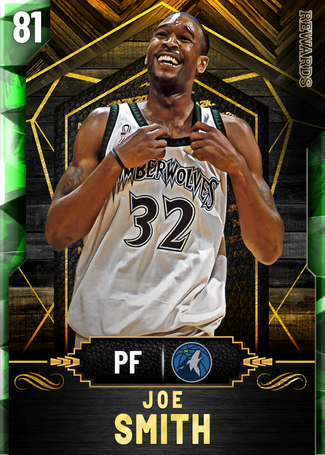
This story went from “raised eyebrows” to “where there’s smoke there’s fire” on the “clichés-for-suspicion” meter when it became known that the Golden State Warriors traded Smith to Philadelphia because he rejected an extension on his original contract which would have been worth $80 million.
The following season, the same thing happened. Smith and the Timberwolves agreed to another one-year deal paying Smith supposedly far less than he was worth. But like Smith’s low-dollar salary, the suspicions really didn’t go up much as Smith really did not return to the “budding star” level he showed in Golden State.
But what blew the lid off the “secret deal” between Taylor and Smith had nothing to do with them; rather it was the dissolution of a partnership between two sports agents, Eric Fleisher and Andrew Miller. As partners, they represented not only Joe Smith, but his “superstar” teammate in Minnesota, Kevin Garnett. But when the partnership split, Miller retained Smith and Garnett as clients. This led to Fleisher filing a lawsuit; the ensuing legal proceedings brought many things to light, especially the “secret (and illegal) deal.”
It works like this. Agents get paid with a percentage of whatever the players they represent are paid. So, it makes perfect sense agents whose business partnership is dissolving would fight over a guy like Kevin Garnett who would earn over $340 million during his NBA career. That begs the question…why would they fight over Joe Smith and his $1.75 million per year?
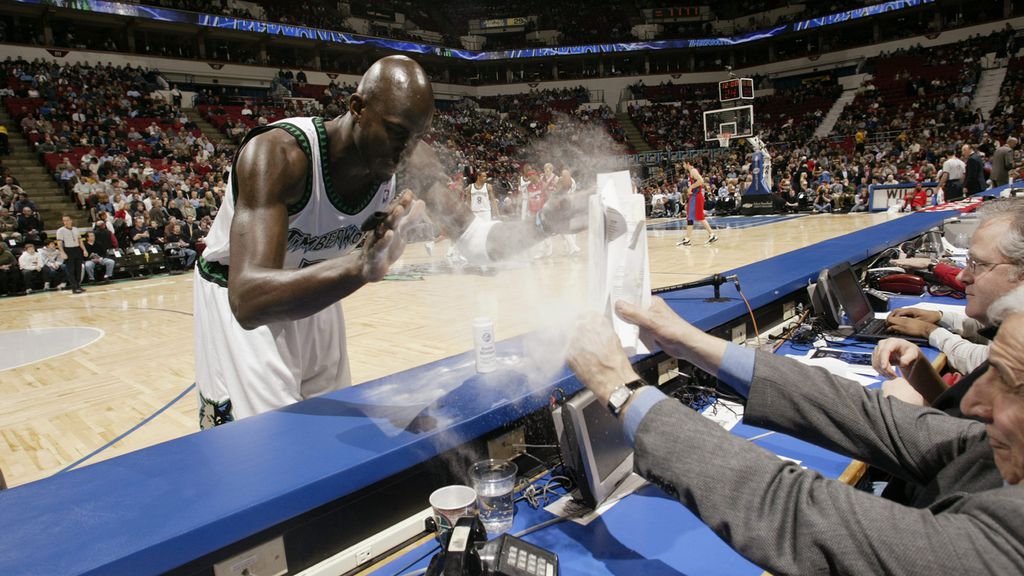
The answer is simple: the agents knew about the “secret deal.” Since agents get paid based on what their clients earn, there’s no way they would agree to such “low-ball” tactics…unless they knew they was a big pay-day coming down the road. That also explains why these two agents were fighting over Joe Smith.
As previously mentioned, Taylor’s Timberwolves were hard up against the NBA’s salary cap, so they really couldn’t afford pay pay another “star.” But they needed one to complete what Taylor believed to be the Timberwolves’ championship puzzle. So he concocted a scheme where Smith would sign three one-year deals at bargain-basement prices for very little money, after which Timberwolves would acquire his “Larry Bird” rights. This refers to a clause in NBA collective bargaining agreements (named for the star player for which it was created) which allows a team to exceed the restrictions of the salary cap in order to keep a player who has been on their roster for a specified period of time.
That was going to be the pay-off for Smith (and his agents) agreeing to the three “small change” deals. Once the “Bird” clause could be applied to Smith, Taylor could break the bank; that “pay-off” deal was reportedly worth nearly $90 million.
No wonder the agents were fighting over him.
Naturally, the NBA was not happy to find out about Taylor’s attempts to circumvent the salary cap. As a franchise, the Minnesota Timberwolves were fined $3.5 million and had to forfeit their first-round draft picks for the next five years. As for Smith, all three contracts he signed with the Timberwolves were voided, which meant Minnesota could not apply the “Bird” clause to him. On top of it all, Timberwolves owner Glen Taylor was suspended from all team-related activities from the start of the 2000 offseason until August 31, 2001.
As of this writing, Glen Taylor and Donald Sterling are the only owners to be suspended by the NBA. Glen “Juliet” Taylor’s undoing came from his “secret marriage” to Joe “Romeo” Smith; a marriage which fell victim to a “business divorce” between two sports agents.
The Moral of the Story:
Any two people can keep a secret so long as they both have an equal amount to lose. Any three people can keep a secret so long as two of them are dead.
Check out Dubsism’s Movies and Blog-A-Thons page for a full schedule of projects past, present, and future!












Dear J-Dub,
I think this is arguably the most romantic basketball article ever written! I really enjoyed it. You wrote about a classic version of a very classic story but threw in your usual surprise by makin it a love letter to sports. We are glad to welcome your Basketball Valentine into the celebration. Thank you so much for participating. Happy Valentine’s Day!
Yours Hopefully,
Tiffany Brannan
LikeLiked by 1 person
Pingback: The Unhappy Valentines Blogathon is Here! | pure entertainment preservation society